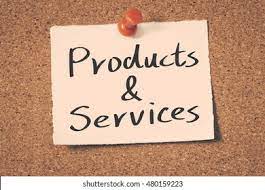HOW TO BUY PROPERTY IN NIGERIA
Tired of paying rent weekly, monthly or annually for your home or office? Have you realized that as a bigger boy or girl the time has come to own a property of your own and fast? Do you want to avoid the hassle of buying open land and developing it? Then congratulations! Here’s the low down on how you can ‘step up’ sharply!
Decide on your financials:
Do you have the cash to buy this house? If you plan to take a loan, where from and how do you intend to repay? You must have a good financial plan for this purchase because you will need to look at houses within your price range. Get advice from a financial expert so you don’t bite off more than you can chew. You wish to own property, not debt.
Go house shopping:
Make your intentions known to an agent who will search for the perfect house based on your specifications, or find the property by yourself. Keep in mind the things that are important to you access to good roads and amenities, access to customers if you want the property for commercial purposes, security, etc.
Value your choice:
Once your dream house has been identified, get a member of the Nigerian Institution of Estate Surveyors and Valuers to value the property. The purpose of a valuation is to get the open market value (OMV) and First Sale Value (FSV). This will help a bank or a mortgage institution determine the type of security or collateral they will want from you if you are asking for a facility from a bank or mortgage institution. However, these institutions will still carry out their own valuation to be certain of the property’s value, so don’t bother ‘sorting’ your expert to undervalue the property. Let him give a fair value and the institution will better trust you with their money.
Check the structure:
You will need to hire a structural engineer who will carry out a structural analysis of the property to determine the structural health of the property. This way, you don’t buy a property prone to collapse or flooding.
Check title:
You will have to carry out legal checks on the title to the land. Get a lawyer to do a search on the title of the property to determine the authenticity of the vendor’s (seller’s) title or whether there is any encumbrance, charge or lien, in favour of a third party. The most common of these are mortgages created over the property in favour of a secured creditor. (Translation: get a lawyer to check that the property can truly be sold; when someone has used his property for a mortgage or a loan facility, it ought to be noted by the creditor at the Ministry of Lands, so your lawyer is to go there and check that the property for sale is not under any sort of mortgage).
Make payment:
Once you are certain that the property is worth its value, structurally sound, and free of any encumbrance, you can pay for the property but make sure that at the time you are paying, the instrument of sale or transfer i.e. the deed of assignment or conveyance assigning or conveying the title or rights in the property, has been drawn up by your lawyer. Ensure that the payment is exchanged with signed copies of the instrument assigning or conveying title. (Translation: when you want to pay, lawyers for both sides – buyer and seller- must have agreed on the document that is drafted (usually called a Deed) to show that the land was bought by the buyer. All documents must be signed and each party must have his own copy. The signing should be done when the money is paid so that you can have evidence of purchase).
Get consent and register:
Finally, you will have to apply for Governor’s consent and registration at the relevant lands registry in the state, or if federal property; at the federal lands registry. This is essential because the Land Use Act stipulates that for there to be a valid transfer or assignment of title to land, the Governor, who holds all land in the state in trust for the people of the state, must give his consent. (Translation: By law, the Governor is presumed to be the trustee of all land in a state, and that is why you apply for Governor’s consent. Then, bearing in mind that you checked who owned that property at the Lands Registry, now you have to go and show them that you have purchased the land and that your name should now be entered in the register as the new owner; that way, no one but you can resell the property- as long as new buyers know to check the lands registry for a title).
Okay, that’s your property in the bag. So don’t fret when you want to purchase a property, just make sure you get your professionals to assist you. You will be dishing out millions, so don’t be in a hurry and end up duping yourself. Good luck.
Further reading: See CN











Comments
Post a Comment